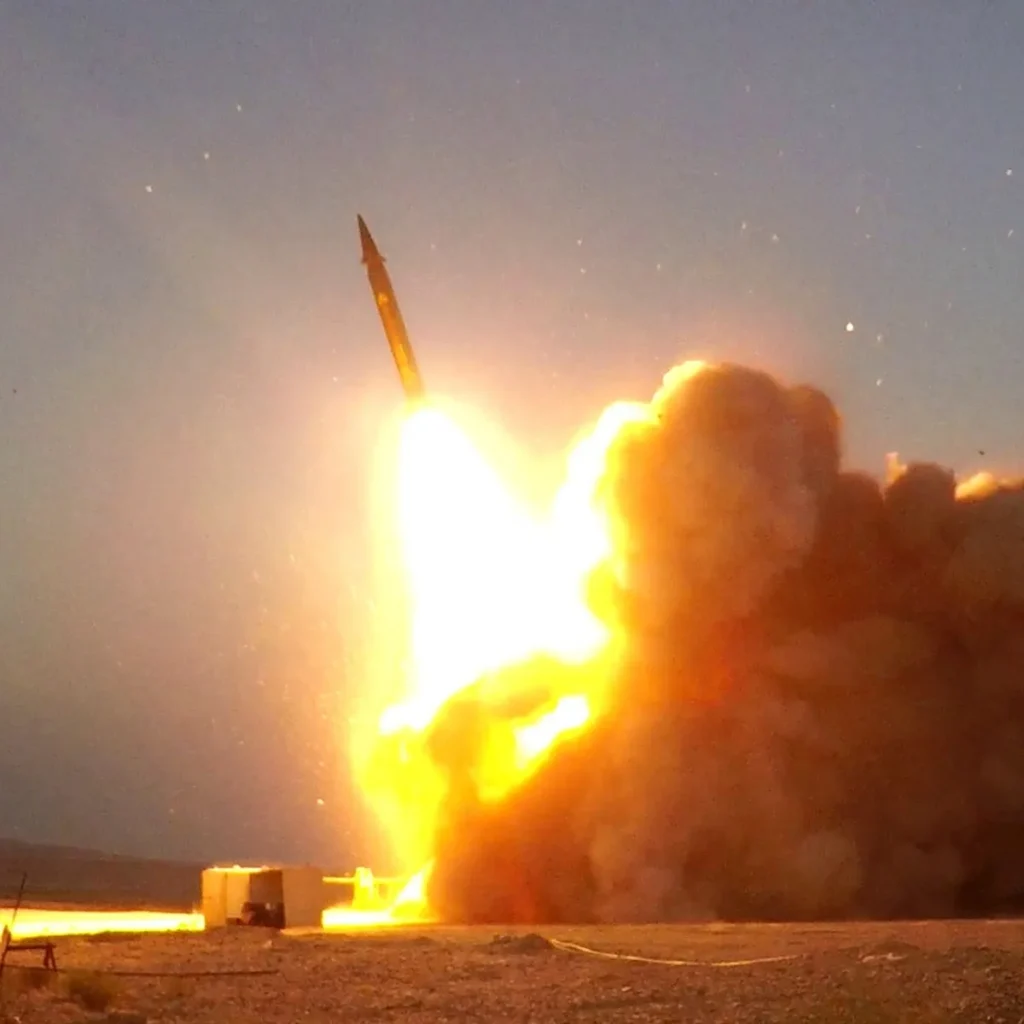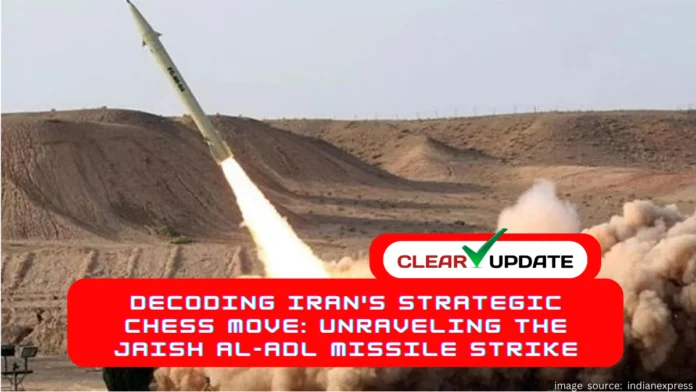In a recent geopolitical development, Iran executed a strategic missile strike targeting alleged militant bases in western Pakistan. This operation, ostensibly directed at Jaish al-Adl, a group labeled by Tehran as an “Iranian terrorist group,” unfolded in the Balochistan region. The aftermath of this event has triggered a diplomatic uproar, with two children losing their lives and three others sustaining injuries. This article delves into the intricacies of this incident, scrutinizing its geopolitical implications, regional tensions, and the delicate relationship between Iran and Pakistan.
Read Also: New Zealand’s Unprecedented Cricket Victory: A Game-Changing Performance | Clear Update

The Target: Jaish al-Adl and Balochistan Dynamics
Unraveling Jaish al-Adl
Jaish al-Adl, translated as the “Army of Justice,” emerges as a focal point in this episode. Characterized as an ethnic Baloch Sunni Muslim group, it has been accused of orchestrating attacks within Iran and against Pakistani government forces. The December 2023 attack on a police station in Rask serves as a testament to its cross-border activities, highlighting the challenges faced by both nations in maintaining security along their shared border.
Read Also: Dhruv Jurel: The Future of Cricket and His Unforgettable Achievements
Balochistan: A Hotbed of Strife
Situated in the vast southwestern border province of Balochistan, the strike targeted the village of Sabz Koh, underscoring the region’s strategic significance. Balochistan has long been a flashpoint, marked by ethnic complexities, militant activities, and challenges related to basic necessities, discrimination, and resource allocation.
Read Also: Dhruv Jurel’s Debut Hype: India’s Squad Announcement | Clear Update
Escalation and International Response
Growing Tensions in the Middle East
The missile strike in Pakistan comes amid escalating tensions in the Middle East, with conflicts between Israel and Hamas dominating headlines. While Tehran asserts its reluctance to engage in a broader conflict, its actions signal a willingness to retaliate against perceived provocations, especially from groups within its “Axis of Resistance.
Read Also: Analyzing Rohit Sharma’s Frustration: A Deep Dive into the IND vs AFG 1st T20I | Clear Update
International Perspectives
Amid the turmoil, international actors like the US, UK, and China have weighed in on the situation. China, urging restraint, emphasizes the close neighborly relationship with both Pakistan and Iran. The US condemned the attack in Iraq, further complicating the geopolitical landscape.
Read Also: India vs Afghanistan 1st T20I: A Thrilling Encounter Unraveled | Clear Update
The Ripple Effect: Diplomatic Fallout
Pakistan’s Strong Reaction
Unsurprisingly, Pakistan swiftly condemned the attack as “illegal,” emphasizing the existence of communication channels between the two nations. This move, deemed a “dramatic escalation” by analysts, resulted in the recall of ambassadors and strained diplomatic ties.
Read Also: Xiaomi Poco X6 Pro | Specifications | DRT
Delicate Relations Tested
The strike coincided with a meeting between Pakistan’s prime minister and Iran’s foreign minister, as well as joint military drills in the Gulf. Despite delicate yet cordial relations, accusations of harboring militant groups persist, posing challenges to the security of their shared border.
As tensions reverberate across the Middle East and South Asia, the missile strike on Jaish al-Adl bases in Pakistan adds another layer of complexity to an already intricate geopolitical landscape. Balochistan’s role as a focal point underscores the challenges faced by Iran and Pakistan in balancing security concerns, diplomatic ties, and regional stability. The fallout from this incident may have far-reaching consequences, requiring astute diplomacy to navigate the complexities of this evolving situation





[…] Read Also: Decoding Iran’s Strategic Chess Move: Unraveling the Jaish al-Adl Missile Strike | Clear Update […]